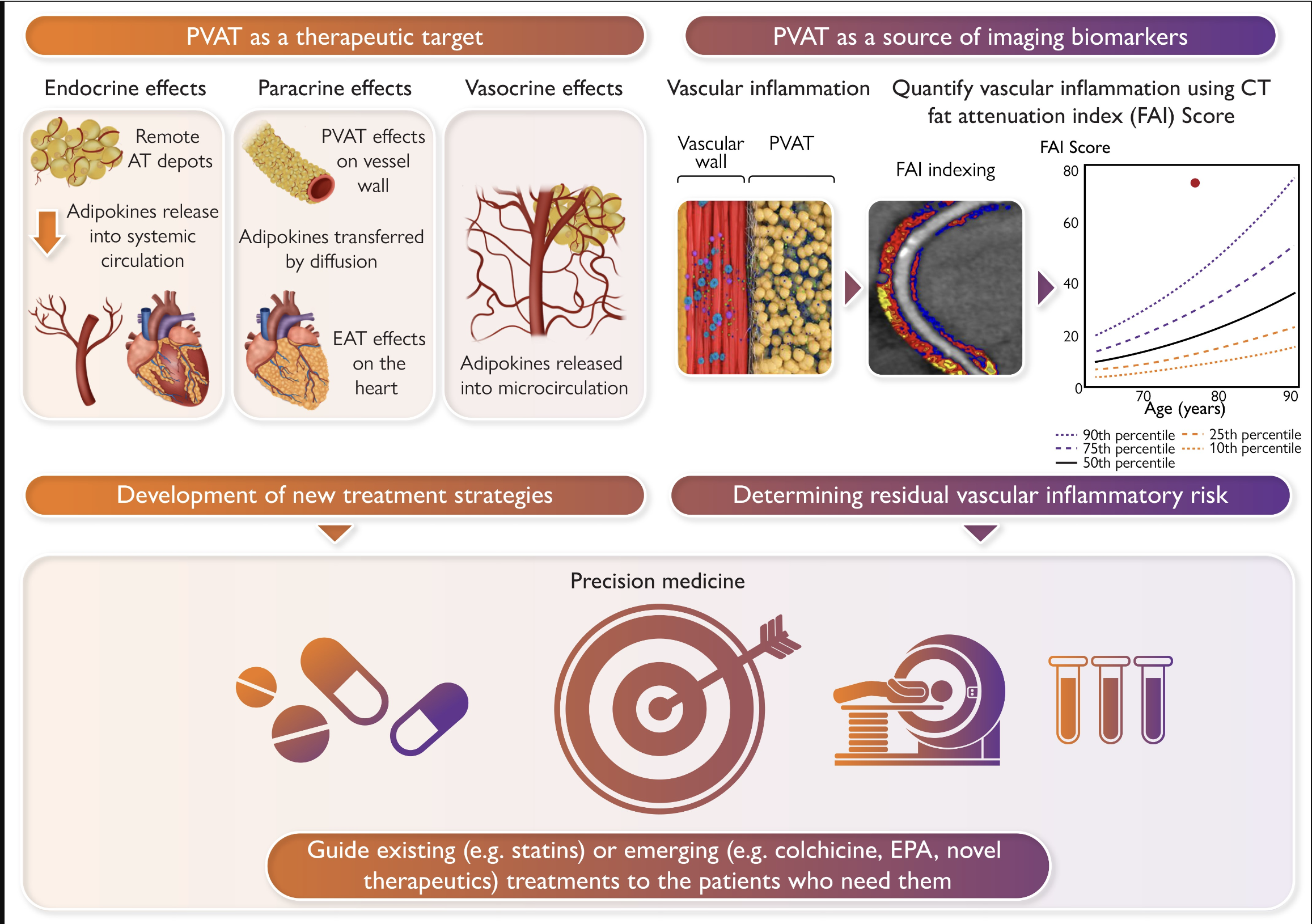Mutual Regulation of Epicardial Adipose Tissue and Myocardial Redox State by PPAR-γ/Adiponectin Signalling
Adiponectin has anti-inflammatory effects in experimental models, but its role in the regulation of myocardial redox state in humans is unknown. Although adiponectin is released from epicardial adipose tissue (EpAT), it is unclear whether it exerts any paracrine effects on the human myocardium.
The objective was to explore the cross talk between EpAT-derived adiponectin and myocardial redox state in the human heart.
EpAT and atrial myocardium were obtained from 306 patients undergoing coronary artery bypass grafting. Functional genetic polymorphisms that increase ADIPOQ expression (encoding adiponectin) led to reduced myocardial nicotinamide adenine dinucleotide phosphate oxidase-derived O2 (-), whereas circulating adiponectin and ADIPOQ expression in EpAT were associated with elevated myocardial O2 (-). In human atrial tissue, we demonstrated that adiponectin suppresses myocardial nicotinamide adenine dinucleotide phosphate oxidase activity, by preventing AMP kinase-mediated translocation of Rac1 and p47(phox) from the cytosol to the membranes. Induction of O2 (-) production in H9C2 cardiac myocytes led to the release of a transferable factor able to induce peroxisome proliferator-activated receptor-γ-mediated upregulation of ADIPOQ expression in cocultured EpAT. Using a NOX2 transgenic mouse and a pig model of rapid atrial pacing, we found that oxidation products (such as 4-hydroxynonenal) released from the heart trigger peroxisome proliferator-activated receptor-γ-mediated upregulation of ADIPOQ in EpAT.
Read more

October 2023
Perivascular adipose tissue as a source of therapeutic targets and clinical biomarkers: A clinical consensus statement from the European Society of Cardiology Working Group on Coronary Pathophysiology and Micro-circulation
This clinical consensus statement from the European Society of Cardiology defines perivascular adipose tissue (PVAT) and highlights the biological mechanisms…
Read more

October 2023
SARS-CoV-2 infection triggers pro-atherogenic inflammatory responses in human coronary vessels
Abstract: Patients with coronavirus disease 2019 (COVID-19) present increased risk for ischemic cardiovascular complications up to 1 year after infection. Although…
